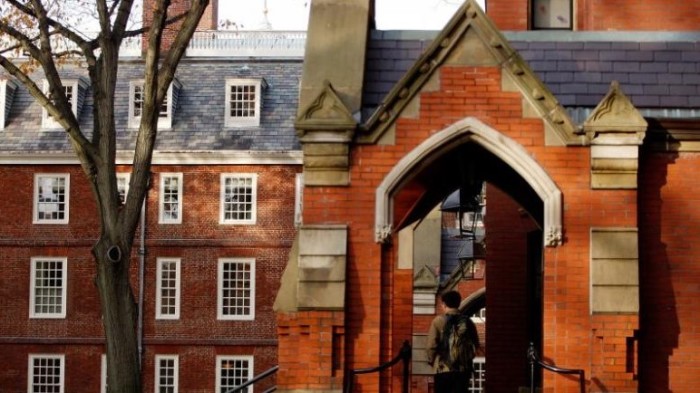Donations from China, human rights abusers to universities threaten freedom, Christian leader says

When universities receive donations from the world’s worst human rights abusers, they risk being pressured to cover up crimes against humanity, a human rights advocate said.
Many of America’s greatest universities take cash from one-party states that persecute Christians, according to a series of investigations from the U.S. Department of Education.
China, Russia, Saudi Arabia, the United Arab Emirates and Qatar gave $6.5 billion in funding and resources to American universities, including Harvard, Yale, Northwestern University, Cornell University, MIT and others, National Review reported. These donations are probably only part of the total amount of money received from oppressive regimes.
Nearly a third of declared gifts from foreign nations to American schools come from regimes that tyrannize their people. Many of the schools didn’t report gifts from oppressive regimes.
International Christian Concern Regional Manager for Southeast Asia Gina Goh told The Christian Post that for persecuted Christians, attention from Western media and universities can be a double-edged sword, but Christians still want it. Although media and university attention often makes individual cases worse for people in dictatorial regimes, the overall situation rarely gets better without it. Public outcry at crimes against humanity can persuade regimes to change their policy. But when schools accept donations from dictatorships, they might not go out of their way to learn about these crimes.
“It’s not just about persecution. It’s an overall human rights issue,” Goh said. “When you receive a lot of donations, what’s at risk is academic freedom. Professors and students get threatened by the Chinese.”
China has a long history of threatening professors who research subjects it doesn’t like, Goh said. China has harassed Professor Anne-Marie Brady, a New Zealand professor who wrote a paper on Chinese manipulation of her nation’s politics, The Guardian reported. China hacked the Brandeis University presentation of Uighur advocate Rayhan Asat, VOA News reported. Senate and federal investigations of China’s American on-campus Confucius Institutes have found that the regime directly hires teachers and prohibits them from criticizing China in their teaching, Fox News reported.
These threats and donations work to create a narrative that favors China in the minds of American students.
“China is trying to bring in its own narrative in the Western world,” Goh said. “What better ways than to start with school? Students are like blank paper. What better to write on?”
The real danger of intellectual influence on academia comes not from dictatorial donations to large, prestigious schools but from donations to smaller schools, Goh said. Famous schools usually have enough money to keep themselves independent, but small schools might have more financial reason to stop the research of professors into the evil actions of tyrannies.
Goh said she can’t point to statistical data showing the impact of Chinese donations on schools, but she knows from personal experience that Washington, D.C., think tanks which receive donations from China start to behave differently. They downplay China’s crimes, hire speakers that justify the regime and subtly change research topics, she said. China has also donated to newspapers, she said.
“There’s no doubt the reason [China] donated money is to influence the rhetoric the university is putting out, making a higher possibility that student groups that don’t support the Chinese government will be canceled. From journalists to researchers to students, they are trying to extend their influence.”
Although donations from states that torment their own people often come with strings attached, Goh said colleges motivated by financial concerns can still accept the money. However, they must do so while making it clear that they will accept no limit to their academic freedom.
“The U.S. institutions should be the ones who stand their ground,” Goh said. “We need to safeguard the values and rights we believe in or little by little it would be eroded by these seemingly benevolent donations.”





























